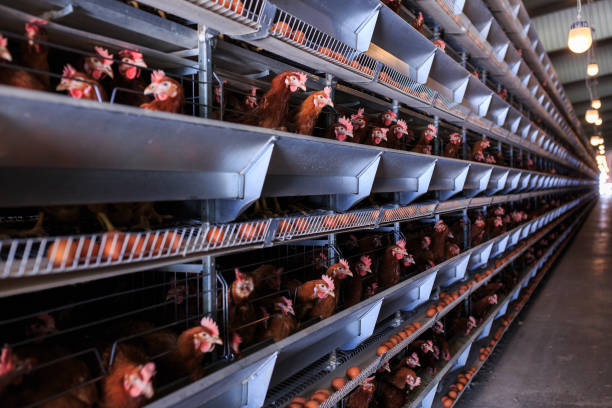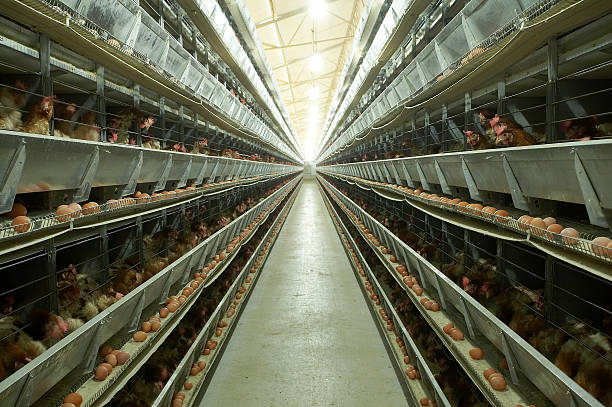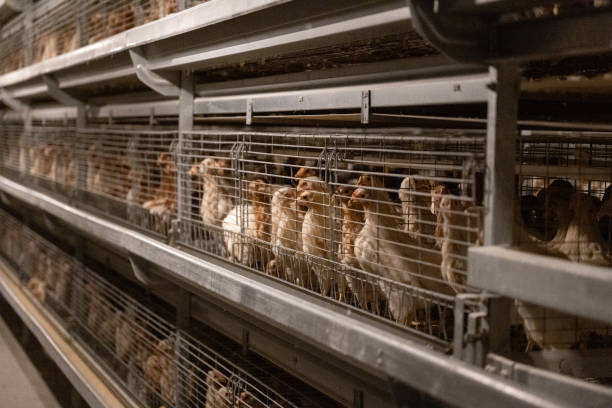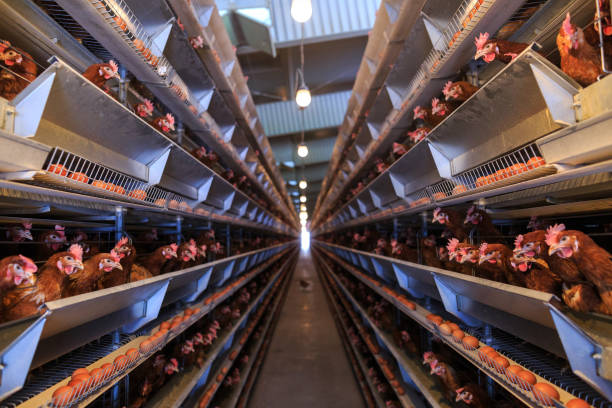
Kienyeji Chicken Farming Solutions in Kisumu
Kienyeji Chicken Farming Solutions in Kisumu
If you’re running or planning to start a kienyeji chicken farm in Kisumu, you already know one thing: traditional indigenous chicken farming is more than just a backyard hobby—it’s a growing agribusiness with real potential. But turning that potential into consistent profit? That requires the right setup, the right technology, and above all, the right support system. At Livi Poultry Equipment from Zhengzhou, we’ve spent over a decade helping small and medium-scale farmers across Africa modernize their poultry systems. And today, we’re putting our expertise to work for kienyeji farmers like you in Kisumu.
Why Kienyeji Farming Needs Modern Support
Let’s face it: many farmers in Kisumu still rely on free-range methods for rearing kienyeji chickens. While this might seem natural—letting birds roam, peck, and forage—it comes with major drawbacks. Disease exposure, predator attacks, inconsistent egg production, and poor growth rates are common issues. Not to mention, tracking health or managing feed becomes nearly impossible without some structure.
This doesn’t mean you have to abandon tradition completely. What we recommend instead is a smart blend—keeping the hardy kienyeji breed but using modern housing and management practices to boost survival, productivity, and profitability. Think of it like upgrading from a flip phone to a smartphone. Same call function, but way better results. That’s where purpose-built kienyeji chicken farming solutions come in.
At Livi, we specialize in designing poultry systems that suit local needs. For example, our modular chicken cages aren’t just for commercial layers—they’re adaptable to indigenous breeds too. These cages provide secure, elevated housing that protects birds from damp ground, rodents, and snakes. They also make feeding and cleaning way easier. You save time, reduce losses, and create healthier birds—without losing that authentic kienyeji flavor consumers love.
Smart Housing That Works for Local Conditions
One of the biggest challenges in Kisumu is the humid climate and frequent rains, especially around Nyando or along the Lake Victoria basin. Traditional wooden or mud-thatched coops can get soggy, attract pests, and degrade quickly. We’ve seen farms lose hundreds of birds simply because their housing couldn’t withstand seasonal changes.
That’s why we introduced weather-resistant poultry cages made from hot-dip galvanized steel. These units don’t rust easily, resist termites, and last over 10 years even in tough conditions. They’re also designed with adjustable slats to ensure proper airflow and keep droppings falling through—reducing mites and ammonia buildup.
But it’s not just about durability. Our kienyeji-specific cages include features like deeper pans to handle scratchier behavior, wider perches to support natural roosting habits, and extra headroom so birds aren’t stressed. We’ve even added nesting boxes at just the right angle so hens feel safe laying eggs—fewer scattered nests mean easier collection and less breakage.
And the best part? These systems aren’t bulky or hard to set up. They come flat-packed and can be assembled in a single day by two people. Whether you’re starting with 50 birds behind your home in Dundo or scaling up to 500 in a rural plot near Sindo, our solutions grow with you. We also offer portable field pens for semi-free-range setups—giving your birds outdoor access while keeping them protected during high-risk hours.
Boosting Productivity Through Better Management Tools
Housing is just the first step. To really increase output, you need to manage nutrition, health, and egg collection wisely. Many farmers in Kisumu struggle with wasted feed—either spilled on the ground or eaten by wild animals. Others can’t track which hens are laying consistently, leading to missed culling decisions.
We solve this with integrated accessories: automatic feeders and water systems adapted for kienyeji sizes. Unlike regular broiler equipment, ours has smaller openings to prevent waste and discourage aggressive fighting. The nipple drinkers deliver clean water on demand, reducing contamination from dirt and flies. This means healthier birds and lower vet bills.
For egg producers, we add digital counters and egg trays that make record-keeping simple. Imagine knowing exactly how many eggs each batch produces every week—you can spot trends, plan sales, and replace underperformers before they eat up your profits. Some of our clients near Kajulu and Ahero have doubled their returns within eight months just by switching to monitored cage systems.
And if you’re incubating your own chicks—which many small farms do—we also offer affordable, energy-efficient hatchers. These models maintain precise temperature and humidity levels, giving you hatch rates above 85%. No more relying on broody hens that might abandon the nest or fall sick. Consistent hatching means steady flock turnover and faster business growth.
Making It Easy to Get Started—and Keep Growing
We know getting started can feel overwhelming. Between costs, space, and technical know-how, many farmers hesitate to upgrade. That’s why Livi doesn’t just sell equipment—we provide full support from design to delivery. Once you share your farm size and goals, our team creates a customized layout plan, often within 48 hours.
We ship directly to Kisumu via Mombasa or Eldoret, and our units arrive with clear assembly instructions (in Swahili and English). If needed, we connect you with trained installers nearby. Plus, all products come with a 3-year warranty and lifetime technical advice via WhatsApp or phone. No fine print. No hidden charges.
And financing? We partner with local agri-loan programs and microfinance groups to help spread payments over time. Some of our customers pay as little as 2,000 KES per month while still making thousands more in additional income from higher yields.
Whether you’re transitioning from backyard keeping or expanding an existing operation, now is the perfect moment to modernize. The demand for healthy, organic-tasting kienyeji meat and eggs is rising fast—not just in Kisumu but across Nairobi, Kakamega, and even export markets. Smart housing gives you the edge to meet that demand reliably and cleanly.
Ready to take your farm to the next level? Drop us a message today with your location and the number of birds you plan to keep. We’ll send over a no-obligation quote and a free layout sketch tailored to your yard or land. Let’s build a smarter, more profitable future for your kienyeji business—one strong cage at a time.
Frequently Asked Questions
What makes kienyeji cages different from regular chicken cages?
Our kienyeji cages are built with wider spacing, taller height, and stronger frames to match the active nature of indigenous chickens. They also include nesting zones and scratch-friendly floors.

Can I use these cages for both layers and growers?

Yes! The same system can house pullets, laying hens, and even meat-type kienyeji birds. Just adjust the feeders and management style accordingly.
Do you deliver to rural areas around Kisumu?
Absolutely. We deliver to towns like Nyando, Miwani, Central Kisumu, and even remote villages. Tell us your exact location and we’ll give shipping details.
How long does it take to assemble the cages?
Most standard sets take 4–6 hours with two people. We include tools and video guides to make it easy.
Is training provided after purchase?
Yes. Our team walks you through daily operations, cleaning routines, feeding schedules, and basic troubleshooting—either online or on-site if possible.

Are spare parts available locally?
While most components are durable and rarely need replacing, we stock spare pans, feeders, and fasteners at our distribution points in Kenya.
Can I expand my system later?
Of course. All our cages are modular, meaning you can add more sections anytime as your flock grows—no rebuilding required.
Do the cages protect against predators?
Yes, the steel construction and lockable doors keep out rats, snakes, mongooses, and cats. Elevated design also prevents flooding and damp.
What if it rains heavily or winds blow?
Our structures are tested for East African weather. Anchoring kits are included to stabilize cages during storms.
How do I place an order?
Simply send us a message with your name, village, number of birds, and preferred cage type. We’ll respond within one business day with options and pricing.
